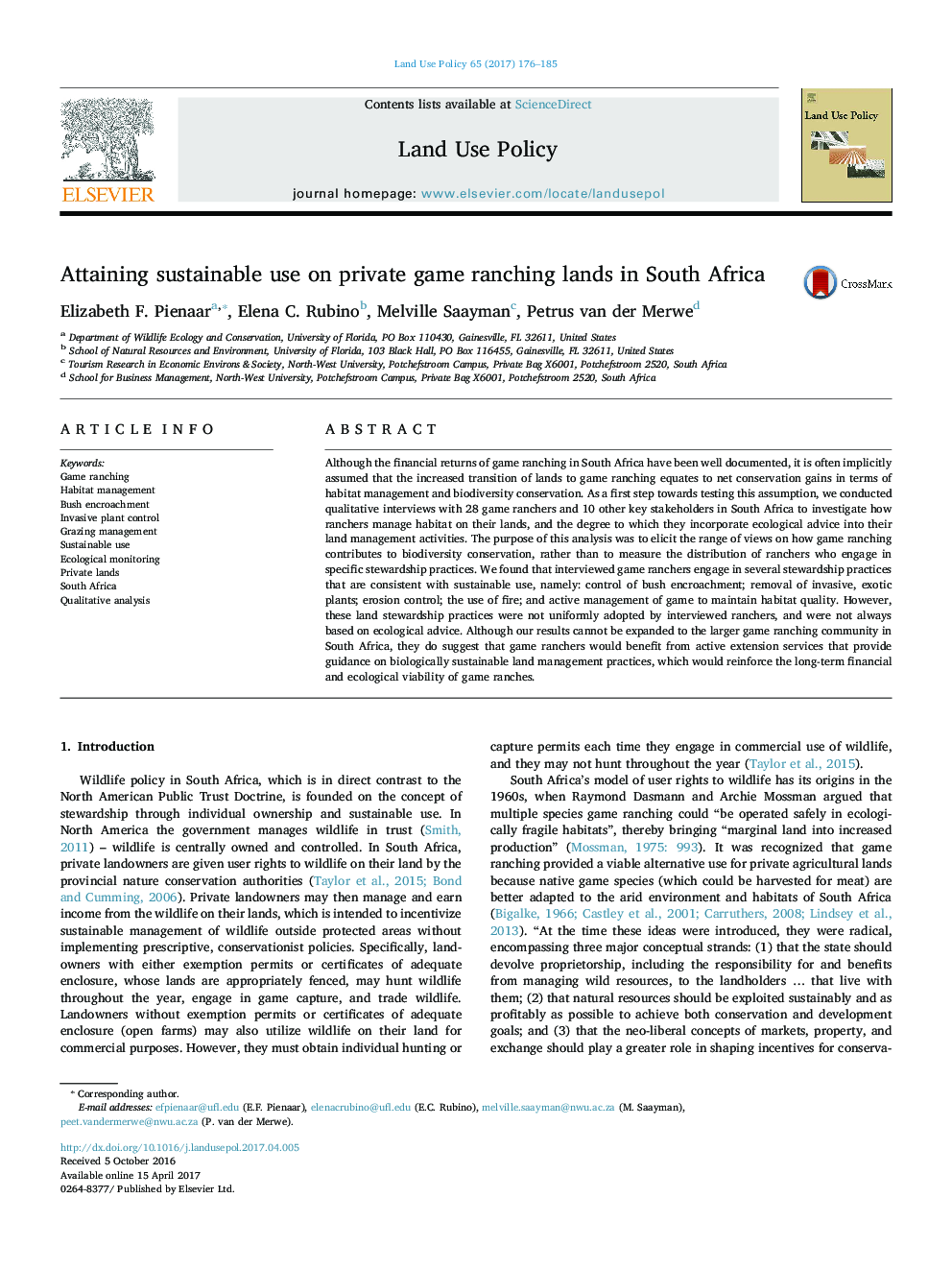| Article ID | Journal | Published Year | Pages | File Type |
|---|---|---|---|---|
| 6461141 | Land Use Policy | 2017 | 10 Pages |
Although the financial returns of game ranching in South Africa have been well documented, it is often implicitly assumed that the increased transition of lands to game ranching equates to net conservation gains in terms of habitat management and biodiversity conservation. As a first step towards testing this assumption, we conducted qualitative interviews with 28 game ranchers and 10 other key stakeholders in South Africa to investigate how ranchers manage habitat on their lands, and the degree to which they incorporate ecological advice into their land management activities. The purpose of this analysis was to elicit the range of views on how game ranching contributes to biodiversity conservation, rather than to measure the distribution of ranchers who engage in specific stewardship practices. We found that interviewed game ranchers engage in several stewardship practices that are consistent with sustainable use, namely: control of bush encroachment; removal of invasive, exotic plants; erosion control; the use of fire; and active management of game to maintain habitat quality. However, these land stewardship practices were not uniformly adopted by interviewed ranchers, and were not always based on ecological advice. Although our results cannot be expanded to the larger game ranching community in South Africa, they do suggest that game ranchers would benefit from active extension services that provide guidance on biologically sustainable land management practices, which would reinforce the long-term financial and ecological viability of game ranches.
